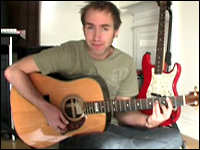There are ways in which the overall output of YouTube could be fairly assessed to provide a royalty payment and give permission for all covers. A snapshot of the music content on a given date could be analysed (a hell of a task) and YouTube pay an agreed overall royalty, divided in the usual way according to the analysis. This is grossly unfair to unsigned, minority interest stuff as what always happens is that the big copyright holders get all the money.
It’s how PRS (Performing Rights Society) do it in the UK. On September 7th, one of their reps is due to visit our folk club. Our crew has been briefed – no Beatles, no Elvis, no Elton John etc! Not too much traditional either (it goes nowhere, they still charge the same fee). Phil Ochs, John Prine, Leonard Cohen, Billy Bragg, Ewan MacColl, Dick Gaughan stuff – great! Make sure the PRS rep lists a set of deserving copyright holders instead of Sir Paul, Jacko, and corporate friends. Then until the next spy is sent to asses us, our playlist will make sure the £6 a week royalty fee provides a few pence to worthwhile songwriters…
And, of course, people can then play as much commercial cover stuff as they like thereafter. You can’t stop ‘em, it’s what the average pub audience wants. ‘Dae somethin’ we ken, can ye?’
I sense that that means “what can you do about it?”
So what *can* you do about it?
Pub players are jukeboxes for popular songs. That’s the gig and I don’t see any way around it. But I also don’t see that as a blocker, because there are other gigs, and new songs will become popular through them.
It’s not even necessarily a thing which you have you *do*, because this whole thread about cover songs is as descriptive as it is prescriptive. Songs which can’t be covered on the internet aren’t going to remain pub standards. That’s the way nature works. Do nothing, you will receive your new body of songs which are both popular and coverable anyway.
Yes, this is about creating culture which is amenable to participation, and for musicians this means playing songs which others can play too. But all you have to do is only play songs on the internet which you learned from others playing on the internet and things will work out that way no matter what.
The results won’t arrive instantly, they will arrive very slowly, over decades. It’s a drip-drip-drip kind of process. Before you know it, the songs which have been controlled too tightly will be just as forgotten as the waltzes that I have been covering here.
 Per NPR
Per NPR